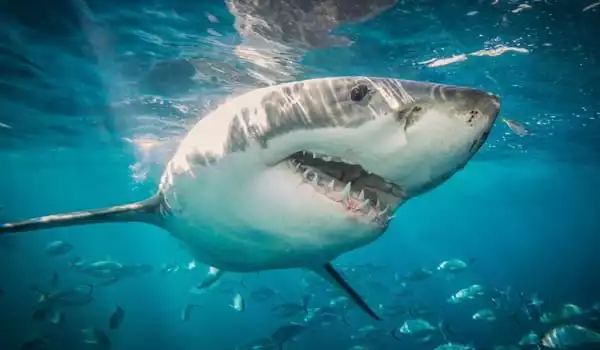“Exciting news! Professor Rosie Woodroffe, the senior research fellow at the Zoological Society of London (ZSL), tweeted earlier this week, “This morning I spotted a dead GREENLAND SHARK washed up on a beach near Newlyn, Cornwall!” “The bad news is that when I returned with a veterinary pathologist after reporting it to the [Cornwall Wildlife Trust] maritime Strandings network, the tide had swept it away!” These were the words that sparked a search party just a few days ago, as scientists and wildlife enthusiasts teamed up to try to locate a 100-year-old Greenland shark that was drifting. What’s the big news? The shark was discovered and safely rescued, providing a once-in-a-lifetime opportunity to learn more about one of the planet’s oldest species.
ARE GREENLAND SHARKS HARD TO COME BY? The IUCN Red List classifies Greenland sharks (Somniosus microcephalus) as vulnerable, having a population that is thought to be declining. When you consider that they dwell in some of the world’s coldest, deepest, and most inaccessible seas, it’s easy to see why there has been so little chance to study them. The only other Greenland shark discovered in the UK occurred in 2013, requiring a rare post-mortem at the Natural History Museum in London. This unique specimen provides another opportunity to study one of the world’s most enigmatic and extraordinary ocean monsters.
GREENLAND SHARKS LIVE FOR HOW LONG?
These cold-water monsters are thought to have a lifespan of up to 400 years in the wild, making them the world’s longest-living vertebrate. It’s a bit more difficult to age them since, unlike other sharks, they have cartilage rather than bones, therefore their vertebrae can be used to age them. Scientists instead study the layers of Greenland sharks’ eye lenses, which continue to expand throughout their lives. This tissue can also be utilized for radiocarbon dating, but we’ll need a sample to work with to figure that out. Their unusually lengthy lives have earned them the moniker “Living Time Capsules,” as scientists believe that their DNA may disclose the secret to living a long life.
WHAT MAKES THIS SPECIMEN SO INTRIGUING? Greenland sharks don’t commonly cross over into human areas because of their great depth and cold, therefore seeing them washed up on beaches, especially as far as Cornwall, UK, is quite uncommon. “This is just the second record of Greenland sharks stranding in the UK — the last one was in 2013,” the Marine Strandings Network stated, announcing that the most recent specimen had been located and was being taken to a post-mortem facility. “An incredibly unusual find and intriguing for fishery scientists,” they said of its finding. Although the shark’s time in the water has come to an end, its arrival in the hands of scientists allows us to put together the intricacies of its existence and learn more about the elusive species as a whole.
















